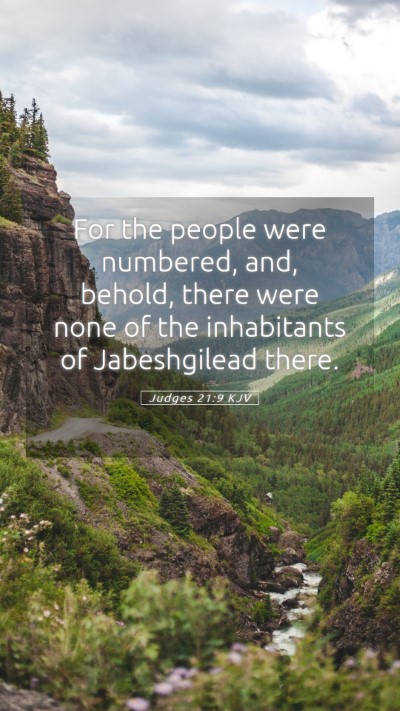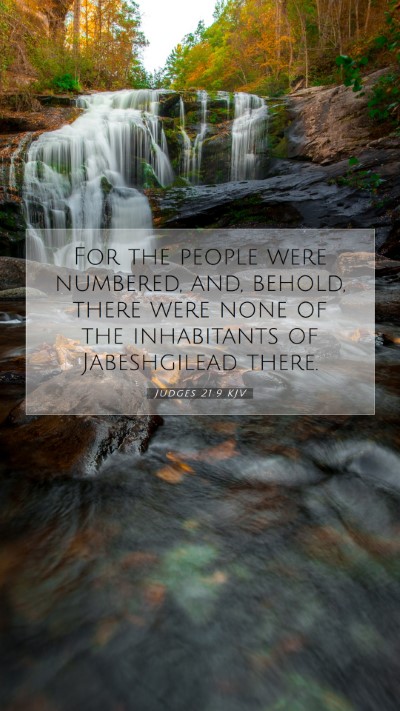Old Testament
Genesis Exodus Leviticus Numbers Deuteronomy Joshua Judges Ruth 1 Samuel 2 Samuel 1 Kings 2 Kings 1 Chronicles 2 Chronicles Ezra Nehemiah Esther Job Psalms Proverbs Ecclesiastes Song of Solomon Isaiah Jeremiah Lamentations Ezekiel Daniel Hosea Joel Amos Obadiah Jonah Micah Nahum Habakkuk Zephaniah Haggai Zechariah MalachiVerse
Judges 21:1 Judges 21:2 Judges 21:3 Judges 21:4 Judges 21:5 Judges 21:6 Judges 21:7 Judges 21:8 Judges 21:9 Judges 21:10 Judges 21:11 Judges 21:12 Judges 21:13 Judges 21:14 Judges 21:15 Judges 21:16 Judges 21:17 Judges 21:18 Judges 21:19 Judges 21:20 Judges 21:21 Judges 21:22 Judges 21:23 Judges 21:24 Judges 21:25

